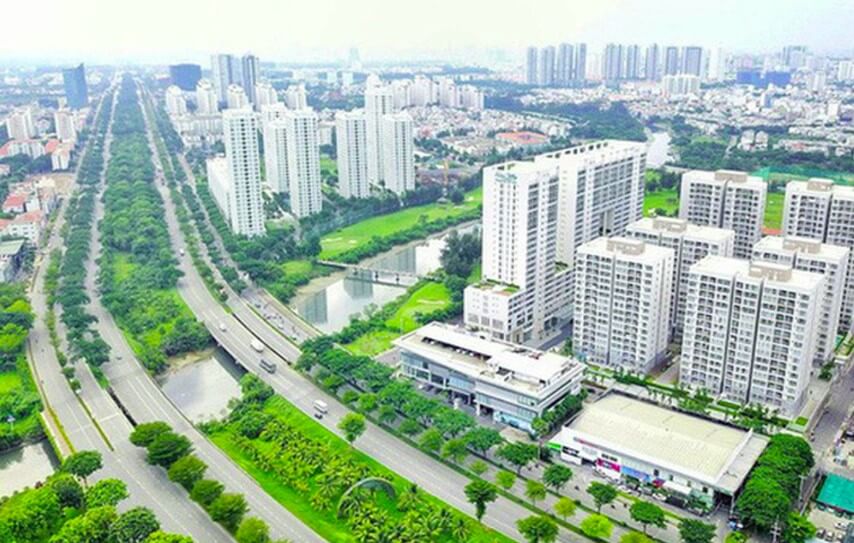Land expropriation and land requisition under Vietnam land law

In some circumstances, land expropriation and land requisition can be conducted. Let’s find out this issue with lawyer X through the following situation: “Dear Lawyer! I want to ask in what circumstances the State may recover land? What State agencies shall have the competence to recover land? Thanks for answering me!”
Legal grounds
- 2013 Vietnam Land law
Land expropriation for national defense or security purpose
The State may recover land for national defense or security purpose in the following cases:
– Land for military barracks or offices;
– Land for construction of military bases;
– Land for construction of national defense works, battle fields and special works of national defense or security;
– Land for military railway stations and ports;
– Land for industrial, scientific and technological, cultural or sports facilities that directly serve national defense or security purpose;
– Land for warehouses for the people’s armed forces;
– Land for shooting grounds, training grounds, and weapon testing and destroying sites;
– Land for training institutions and centers, hospitals and sanatoriums of the people’s armed forces;
– Land for construction of public-duty houses of the people’s armed forces;
– Land for detention and re-education institutions managed by the Ministry of National Defense or the Ministry of Public Security.
Land expropriation for socio-economic development in the national or public interest
The State may recover land for socio-economic development in the national or public interest in the following cases:
– Implementation of projects of national importance which are approved in principle by the National Assembly for which land must be expropriated.
– Implementation of projects which are approved or decided by the Prime Minister, including:
+ Projects on construction of industrial parks, export processing zones, hi-tech zones, economic zones, new urban centers; investment projects funded with official development assistance (ODA) capital;
+ Projects on construction of offices of state agencies, central political and socio-political organizations, offices of foreign organizations with diplomatic functions; ranked historical-cultural relics and scenic spots, parks, squares, statutes, monuments and national public non-business facilities;
+ Projects for construction of national technical infrastructure including transport, irrigation, water supply and drainage, electricity and communication facilities; oil and gasoline pipelines and depots; national reserve warehouses; facilities for waste collection and treatment.
– Implementation of projects which are approved by provincial-level People’s Councils for which land must be expropriated, including:
+ Projects on construction of offices of state agencies, political and socio-political organizations; ranked historical-cultural relics and scenic spots, parks, squares, statutes, monuments, and local public non-business facilities;
+ Projects on construction of local technical infrastructure including transport, irrigation, water supply and drainage, electricity, communication and urban lighting works; facilities for waste collection and treatment;
+ Projects on construction of common activities of the communities; projects on resettlement, dormitories for students, social houses, and public-duty houses; construction of religious institutions, public culture, sports and entertainment and recreation centers; markets; graveyards, cemeteries, funeral service centers and cremation centers;
+ Projects on construction of new urban centers and rural residential areas; on improvement of urban areas and rural residential areas; industrial clusters; concentrated zones for production and processing of agricultural, forestry, aquaculture and seafood products; and projects on development of protection forests or special-use forests;
+ Mining projects that are licensed by competent agencies, except mining of minerals for use as common construction materials, peat, and minerals in scattered and small mining areas, and salvage mining.
Bases for land expropriation for national defense or security purpose; for socio-economic development in the national or public interest
Land expropriation for national defense or security purpose; for socio-economic development in the national or public interest must be based on the following:
– The projects require land expropriation as prescribed in Articles 61 and 62 of Land law.
– The annual district-level land use plans which are approved by competent state agencies.
– The land use schedule of the projects.

Land expropriation due to violations of land law
– Cases of land expropriation due to violations of the land law include:
+ Land is not used for the purposes for which land has been allocated, leased, or land use rights have been recognized by the State and the land users, after having been sanctioned administratively for using land for improper purposes, still continue committing the violation;
+ Land users intentionally damage land;
+ Land was allocated or leased to wrong subjects or ultra vires;
+ Land that is ineligible for transfer or donation as prescribed in Land law is transfeưed or donated;
+ Land that is allocated by the State for management is encroached or occupied;
+ Land that is ineligible for transfer of land use rights as prescribed by Land law is encroached or occupied due to the irresponsibility of land users;
+ Land users who fail to fulfill obligations to the State and have been administratively sanctioned for such violation but do not comply;
+ Land for annual crops that is not used for 12 consecutive months; land for perennial plants that is not used for 18 consecutive months; land for afforestation that is not used for 24 consecutive months;
+ Land that is allocated or leased for implementing investment projects is not used within 12 consecutive months, or the land use schedule is 24 months late compared with the schedule stated in the project documents since the hand-over in the field. In case of not putting the land into use, the land use term may be extended 24 months and the investors shall pay a sum of money equivalent to the total land use levy or land rental for the delayed period. If the investors still fail to put the land into use when the extended time is over, the State shall recover the land without compensation for land and land-attached assets, except due to force majeure.
– Land expropriation due to violations of the land law must be based on documents and decisions issued by state agencies which are competent to determine violations of the land law.
– The Government shall detail this Article.
Land expropriation due to termination of land use in accordance with law, voluntary return of land or risks of threatening human life
– Cases of land expropriation due to termination of land use in accordance with law, voluntary return of land or risks threatening human life include:
+ Organizations to which land is allocated by the State without land use levy, or organizations to which land is allocated with land use levy and the land use levy is originated from the state budget, are dissolved, go bankrupt, move to another place, or have lower or no land use demand; land users which lease land with annual rental payment are dissolved, go bankrupt, move to another place, or have lower or no land use demand;
+ Individual land users die without any heir;
+ Land users return the land voluntarily;
+ Land is allocated or leased by the State for definite periods and such periods expired without extension allowed;
+ Land is located in environmentally polluted areas which bears the risks of threatening human life;
+ Land having risks of being eroded or sunk or otherwise affected by other natural disasters threatening human life.
– Land expropriation prescribed in Clause 1 of this Article must be based on the following:
+ For the case of land expropriation prescribed at Point a, Clause 1 of this Article, the document of a competent agency which has taken legal effect;
+ For the case of land expropriation prescribed at Point b, Clause 1 of this Article, the death certificate or the decision declaring that the individual concerned is dead in accordance with law and the document issued by the commune-level People’s Committee of the locality where the individual concerned resides, confirming that h+she has no heir;
+ For the case of land expropriation prescribed at Point c, Clause 1 of this Article, the document of the land user on the return of land;
+ For the case of land expropriation prescribed at Point d, Clause 1 of this Article, the decision on land allocation or land lease;
+ For the case of land expropriation prescribed at Point e and Point f, Clause 1 of this Article, the decision issued by a competent state agency determining the extent to which land is environmentally polluted, eroded, sunk, or otherwise affected by another natural disaster which threatens human life.
– The Government shall detail this Article.
Regulations on competence to recover land
– Provincial-level People’s Committee may decide on land expropriation in the following cases:
+ Recovery of land from organizations, religious institutions, overseas Vietnamese, foreign organizations with diplomatic functions, and foreign-invested enterprises, excluding the case prescribed at Point b, Clause 2 of this Article;
+ Recovery of agricultural land which is part of the public land funds of communes, wards or townships.
– District-level People’s Committees may decide on land expropriation in the following cases:
+ Recovery of land from households, individuals and communities;
+ Recovery of land from overseas Vietnamese who are allowed to own houses in Vietnam.
– In case both subjects prescribed in Clauses 1 and 2 of this Article exist in one expropriated area, the provincial-level People’s Committee shall decide on the land expropriation or authorize district-level People’s Committees to decide on the land expropriation.
Notification of land expropriation and compliance with decisions on land expropriation for national defense or security purpose; or for socio-economic development in the national or public interest
– Before issuing a decision on land expropriation, at least 90 days prior to the recovery of agricultural land or 180 days prior to the recovery of non-agricultural land, competent state agencies shall notify the land users of the land expropriation. The contents to be notified include land expropriation, investigation, survey, measurement and inventory plans.
– In case land users whose land is expropriated agree on the land expropriation plan prior to the time limit prescribed in Clause 1 of this Article, the competent People’s Committee may decide on land expropriation without having to wait until the time limit for the land expropriation notification expires.
– Land users whose land is expropriated shall coordinate with agencies and organizations performing compensation and ground clearance in the process of investigation, survey, measurement, inventory, and making of plans for compensation, support and resettlement.
– After the land expropriation decisions take effect and plans for compensation, support and resettlement approved by competent state agencies are publicized, land users whose land is expropriated shall comply with the land expropriation decisions.
Organizations in charge of compensation and ground clearance; management of expropriated land
– Organizations in charge of compensation and ground clearance include public land service organizations and compensation, support and resettlement councils.
– The expropriated land shall be allocated for management and use according to the following provisions:
+ Land expropriated under Articles 61 and 62 of Land law shall be allocated to investors for implementation of investment projects or to public land service organizations for management;
+ Land expropriated under Clause 1, Article 64, and Points a, b, c or d, Clause 1, Article 65 of Land law shall be allocated to public land service organizations for management and auction of land use rights.
In case the land expropriated under Clause 1, Article 64, and Point a, b, c or d, Clause 1, Article 65 of Land law, is agricultural land of households and individuals in rural areas that land shall be allocated to commune-level People’s Committees for management. This land fund shall be allocated or leased in accordance with law to households and individuals that have no land or lack production land.
– The Government shall detail this Article.
Order and procedures for land expropriation for national defense or security purpose; for socio-economic development in the national or public interest
– The making and implementation of plans for land expropriation, investigation, survey, measurement and inventory are prescribed as follows:
+ The People’s Committee having competence to recover land shall issue a notice of land expropriation.
The notice of land expropriation must be sent to every land user whose land is expropriated, publicized in the meetings with people in the expropriated area and through the mass media, posted up at offices of the commune-level People’s Committee and at common public places of the residential areas of which land is expropriated;
+ The commune-level People’s Committee shall coordinate with the organization in charge of compensation and ground clearance to implement plans for land expropriation, investigation, survey, measurement and inventory;
+ Land users shall coordinate with the organization in charge of compensation and ground clearance in conducting investigation, survey and measurement of land area, inventory of houses and other land-attached assets to develop plans for compensation, support and resettlement;
+ In case the land users in the expropriated area do not cooperate with the organization in charge of compensation and ground clearance for investigation, survey, measurement and inventory, the commune-level People’s Committee and Vietnam Fatherland Front in the locality and the organization in charge of compensation and ground clearance shall mobilize and persuade the land users to cooperate.
If the land users still do not cooperate with the organization in charge of compensation and ground clearance within 10 days after the mobilization and persuasion, the chairperson of the district-level People’s Committee shall issue a decision on compulsory inventory. Land users whose land is to be expropriated shall comply with that decision. In case the land users do not comply with the decision, the chairperson of the district-level People’s Committee shall issue a decision on enforcement of the decision on compulsory inventory and organize the enforcement in accordance with Article 70 of Land law.
– The making and appraisal on plans for compensation, support and resettlement are prescribed as follows:
+ The organization in charge of compensation and ground clearance shall make the plan for compensation, support and resettlement and coordinate with the commune-level People’s Committee in the locality to conduct consultations on the plans for compensation, support and resettlement in the forms of meetings with land users living in the expropriated area, posting up the plan for compensation, support and resettlement at offices of the commune-level People’s Committee and at common public places of the residential areas of which land is expropriated.
The consultation results must be recorded in minutes which are certified by representatives of the commune-level People’s Committee and Vietnam Fatherland Front, and land users whose land is expropriated.
The organization in charge of compensation and ground clearance shall make a written summarization of opinions which clearly specifies the numbers of opinions for, against and other opinions regarding the plans for compensation, support and resettlement; coordinate with the commune-level People’s Committee in the locality in organizing dialogues with those who have objections on the plans for compensation, support and resettlement; and improve the plans for compensation, support and resettlement for submission to competent agencies.
+ Competent agencies shall appraise the plans for compensation, support and resettlement before submitting them to the competent People’s Committee for decision on land expropriation.
– The decision on land expropriation, the approval and the organization of implementation of the plans for compensation, support and resettlement are prescribed as follows:
+ The People’s Committee which has the competence as prescribed in Article 66 of Land law shall issue a decision on land expropriation and a decision on approval of the plans for compensation, support and resettlement in the same day;
+ The organization in charge of compensation and ground clearance shall coordinate with the commune-level People’s Committee to publicize and post up the decision on approval of the plans for compensation, support and resettlement at the commune-level People’s Committee offices and at common public places of the residential areas of which land is expropriated. The organization shall send the decision on compensation, support and resettlement to each person whose land is expropriated and that decision will clearly show the level of compensation and support, arrangement of the resettlement land or house (if any), time and place of payment for compensation or support, time to arrange resettlement land or house (if any) and time to hand over the expropriated land to the organization in charge of compensation and ground clearance;
+ The organization in charge of compensation and ground clearance shall implement activities in accordance with the approved plans for compensation, support and resettlement;
+ In case land users whose land is to be expropriated fail to hand over the land to the organization in charge of compensation and ground clearance, the commune-level People’s Committee and Vietnam Fatherland Front in the locality and the organization in charge of compensation and ground clearance shall mobilize and persuade the land users to hand over.
In case the land users fail to comply with the decision even after the mobilization and persuasion, the chairperson of the district-level People’s Committee shall issue a decision on enforcement of land expropriation and organize the enforcement in accordance with Article 71 of Land law.
– The organization in charge of compensation and ground clearance shall manage land which is already cleared.
Enforcement of decisions on compulsory inventory
– Principles of enforcement of a decision on compulsory inventory:
+ The enforcement is conducted in a public, democratic, objective, orderly, safe and lawful manner;
+ The times of starting the enforcement fall in working hours.
– The enforcement of a decision on compulsory inventory may be conducted when all the following requirements are met:
+ Land users whose land is to be expropriated do not comply with the decision on compulsory inventory after the mobilization and persuasion by the commune-level People’s Committee, Vietnam Fatherland Front and the organization in charge of compensation and ground clearance;
+ The decision on enforcement of the compulsory inventory decision is posted up publicly at the office of the commune-level People’s Committee and at common public places of the residential area of which land is expropriated;
+ The decision on enforcement of the compulsory inventory decision has taken effect;
+ The person who is to be coerced has received the effective decision on enforcement.
In case the person who is to be coerced refuses to receive the decision on enforcement or is absent when the decision on enforcement is delivered, the commune-level People’s Committee shall make a written record of delivery.
– The district-level People’s Committee chairperson who issues the decision on enforcement shall execute the decision on compulsory inventory and organize the execution of the decision on enforcement.
– The order and procedures for executing the decision on enforcement of compulsory inventory are prescribed as follows:
+ The organization assigned to conduct the enforcement shall mobilize, persuade and organize dialogues with, the coerced people;
+ In case the coerced person complies with the decision on enforcement, the organization assigned to conduct enforcement shall make a written record to acknowledge the compliance, and conduct investigation, survey, measurement or inventory.
In case the coerced person fails to comply with the decision on enforcement, the organization assigned to conduct the enforcement shall execute the decision on enforcement.
Enforcement of land expropriation decisions
– The principles of enforcement of a land expropriation decision comply with Clause 1, Article 70 of Land law.
– The enforcement of a land expropriation decision is conducted when all the following requirements are met:
+ The person whose land is to be expropriated fails to comply with the land expropriation decision after the mobilization and persuasion by the commune-level People’s Committee and Vietnam Fatherland Front in the locality and the organization in charge of compensation and ground clearance;
+ The decision on enforcement of the land expropriation decision is posted up at the office of the commune-level People’s Committee and at common public places of the residential area of which land is expropriated;
+ The decision on enforcement of the land expropriation decision has taken effect;
+ The person who is to be coerced has received the effective decision on enforcement.
In case the person who is to be coerced refuses to receive the decision on enforcement or is absent when the decision on enforcement is delivered, the commune-level People’s Committee shall make a written record of delivery.
– The chairperson of the district-level People’s Committee issues the decision on enforcement of the land expropriation decision, and organizes the execution of the decision.
– The order and procedures for enforcement of land expropriation:
+ Before executing the enforcement, the chairperson of the district-level People’s Committee shall decide to establish an enforcement board;
+ The enforcement board shall mobilize, persuade, and conduct dialogues with, the coerced persons. If the coerced persons comply, the enforcement board shall prepare a written record to acknowledge the compliance. The land must be handed over within 30 days from the date of making the minutes.
In case the coerced person fails to comply with the decision on enforcement, the enforcement board shall execute the enforcement;
+ The enforcement board has the power to ask coerced persons and related people to leave the coerced areas and to move their properties out of the land areas by themselves. If these people fail to comply, the enforcement board shall move the coerced persons, related people and their properties out of the areas.
In case the coerced person refuses to receive their properties, the enforcement board shall make a written record, preserve the properties in accordance with law, and notify the properties’ owners to get the properties back.
– Responsibilities of organizations and individuals in executing decisions on enforcement of land expropriation:
+ The district-level People’s Committee shall implement the enforcement, settle complaints related to the enforcement in accordance with the law on complaints; implement the resettlement plans before executing the enforcement; ensure necessary conditions and means to serve the enforcement; and allocate funds for enforcement activities;
+ The enforcement board shall assume the prime responsibility for making the enforcement plans and cost estimation for enforcement activities and submitting them to the competent People’s Committee for approval, conduct the enforcement in accordance with the approved plans and hand over the land to the organization in charge of compensation and ground clearance.
In case there remain properties on the coerced land, the enforcement board shall preserve the properties. The preservation cost shall be born by the properties’ owners;
+ The police shall maintain social order and safety in the process of organizing the execution of the decision on enforcement of land expropriation;
+ The commune-level People’s Committee of the locality concerned shall coordinate with related agencies in delivering and posting up the decision on enforcement of land expropriation, participate in the enforcement process and coordinate with the organization in charge of compensation and ground clearance in sealing and moving the properties of coerced people;
+ Other related agencies, organizations and individuals shall coordinate with the enforcement board in executing the enforcement of land expropriation at the request of the enforcement board.
– The Government shall detail this Article.
Regulations on land requisition
– The State may requisition land in case of extreme necessity to perform the tasks of national defense or security, or in a state of war or emergency, or of prevention and combat of natural disasters.
– The decision on land requisition must be made in writing. In case of emergency when the decision can not be made in writing, the person who has competence to requisition land may make the decision verbally but shall write a confirmation document on the land requisition decision right at the time of land requisition. The decision on land requisition takes effect from the time of its issuance.
Within 48 hours from the time of making the land requisition decision verbally, the agency of the person making that decision shall confirm in writing and send the confirmation document to the person whose land is requisitioned.
– The Minister of National Defense, the Minister of Public Security, the Minister of Transport, the Minister of Agriculture and Rural Development, the Minister of Health, the Minister of Industry and Trade, the Minister of Natural Resources and Environment, chairpersons of provincial-level People’s Committees and chairpersons of district-level People’s Committees have the competence to decide on land requisition and to extend the duration of land requisition. The persons who have the competence to requisition land may not delegate this competence to another person.
– The duration of land requisition must not exceed 30 days from the time the decision on land requisition takes effect. In a state of war or emergency, the duration of land requisition is counted from the date of issuance of the decision on land requisition, but must not exceed 30 days from the date the state of war or emergency is repealed.
In case the duration of land requisition expires but the objectives of the requisition have not been achieved, the land requisition duration may be extended for no more than 30 days. The decision to extend the land requisition must be made in writing and sent to the people whose land is requisitioned before the land acquisition duration expires.
– The person whose land is requisitioned shall comply with the decision on land requisition. If the land requisition decision is made in accordance with law and the people whose land is requisitioned fail to comply with that decision, the person who decides to requisition the land shall issue a decision on enforcement and organize the enforcement, or assign the chairperson of the provincial-level People’s Committee and the district-level People’s Committee of the locality to organize the enforcement.
– The person who has the competence to decide on land requisition shall allocate the requisitioned land to organizations and individuals for efficient and proper management and use; return the land when the requisition duration expires; and make compensation for the damage caused by the land requisition.
– The compensation for damage caused by land requisition is prescribed as follows:
+ The person whose land is requisitioned is entitled to compensation in case the requisitioned land is destroyed or his/her income is lost as a direct consequence of the land requisition;
+ If the requisitioned land is destroyed, the compensation must be made in money, based on the price of land use rights transferred in the market at the payment time;
+ If the person whose land is requisitioned loses income as a direct consequence of the land requisition, the compensation must be determined based on the actual loss of income from the hand-over date to the returning date of the requisitioned land which is indicated in the decision on return of the requisitioned land.
The amount of actual loss of income must be consistent with the income incurred from the requisitioned land in normal conditions prior to the requisition.
+ The chairperson of the provincial- or district-level People’s Committee of the locality shall form a council to determine the level of compensation for damage caused by the land requisition based on the written declarations of the land users and cadastral records. Based on the level of compensation determined by the council, the chairperson of the provincial- or district-level People’s Committee shall decide on the compensation;
+ Compensation for damage caused by land requisition must be paid from the state budget in one-off payment and directly to the person whose land is requisitioned within 30 days from the returning date.
– The Government shall detail this Article.
Use of land through transfer and lease of land use rights and receipt of land use rights contributed as capital for production and business
– If the land used for the projects or facilities for production and business purposes is not subject to recovery by the State as prescribed in Articles 61 and 62 of Land law and such land use is in accordance with the land use master plans and plans approved by competent state agencies, the investors may receive the transfer of, or lease, land use rights, or receive land use rights contributed as capital in accordance with law.
– The State shall adopt policies to encourage the lease of land use rights or the receipt of land use rights contributed as capital of economic organizations, households and individuals to implement the projects or facilities for production and business.
– The Government shall detail this Article.
Please see more:
- Instructions for exclusive registration of company logos in Vietnam
- Service of changing the legal representative of Vietnamese enterprises
Services of Lawyer X
Prestigious professional services: Firstly, the team of consultants and consultants for many years in the field of civil status, and customer support.
On-time: Certainly, with the motto “Get your lawyer right at your fingertips”, we ensure the service always performs on time. The rights and interests of customers always come first.
Cost: Besides, Lawyer X’s service costs are highly competitive; depending on the nature of the particular case. So, we want our guests to have the best possible service experience. Therefore, costs which guaranteed to be the most suitable and economical for customers.
Confidentiality of client information: Finally, all personal information of clients Lawyer X will be 100% confidential.
If you need any further information, please contact LSX Law firm: at +84846175333 or Email: [email protected]
Frequently asked questions
The State may requisition land in case of extreme necessity to perform the tasks of national defense or security, or in a state of war or emergency, or of prevention and combat of natural disasters.
The decision on land requisition must be made in writing. In case of emergency when the decision can not be made in writing, the person who has competence to requisition land may make the decision verbally but shall write a confirmation document on the land requisition decision right at the time of land requisition. The decision on land requisition takes effect from the time of its issuance.
Within 48 hours from the time of making the land requisition decision verbally, the agency of the person making that decision shall confirm in writing and send the confirmation document to the person whose land is requisitioned.
Conclusion: So the above is Land expropriation and land requisition under Vietnam land law. Hopefully with this article can help you in life, please always follow and read our good articles on the website: lsxlawfirm.com




